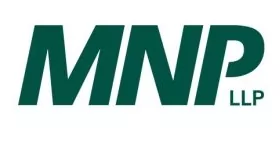In my blog titled 'Using an Estate Freeze to Transition Your Business', I considered a transition of a company to the next generation. In that blog, the shares were held directly by the child. Oftentimes, families who are considering implementing an estate freeze are looking for the benefits of that tactic, but are not ready to make the decision of who will be the ultimate owner of the shares. Many families ultimately find that a family trust will provide them with more benefits than having their children acquire the shares directly.
A family trust is an excellent tool to assist in family and estate planning. In a trust relationship, a trustee holds legal title and controls the assets of the trust, but they are held for the beneficiaries. The separation of beneficial ownership from legal ownership makes a discretionary family trust an effective tool for protecting assets from claims of creditors, income splitting and wealth transfer. It is commonly understood that the trust property is generally not matrimonial property; however, B.C. recently enacted new legislation (Family Law Act), which specifically deals with how to allocate property in a family trust for matrimonial asset purposes.
When setting up a family trust as part of a business structure, the shareholders should be aware of how a family trust is different than owning shares directly.
Separation of beneficial ownership from legal ownership
As the trustees hold legal title of the assets held by the family trust, they maintain control over the assets until they desire to transfer property to the beneficiaries. The trustees also have discretion to treat the beneficiaries differently from one another. In contrast, if the shares were held outright, all shareholders of a class are entitled to the same treatment, whereas if they are beneficiaries of a trust, the trustees can decide whether or not they receive any income. The trustees have a fiduciary duty to the beneficiaries to hold the assets for them.
Flexibility
As the trustees have discretion to act in a manner that they choose, they have the flexibility to make decisions regarding allocation of income and capital of the trust.
Separation of income from capital
The trustees of the family trust can decide to allocate income differently than the eventual allocation of capital (i.e. shares). For instance, one beneficiary of a family trust can receive dividends for education purposes, but the shares may eventually be transferred to a different beneficiary. This is quite different than an outright ownership of shares, where the income and capital cannot be separated.
Flow through entity
From a tax perspective, a family trust is a conduit for income - dividends can be paid on the common shares and the trustees have discretion on the allocation of the dividend amongst the beneficiaries. If the trust retains the income, it will be taxable at the highest marginal tax rates. If the trust allocates the income to the beneficiaries, the income will be taxed in the hands of the beneficiary at their personal marginal tax rates.
In addition, the dividends and capital gains that flow through a trust will maintain their character. As such, if a family trust sells shares that qualify for the capital gain deduction, the capital gains deduction can be used by the beneficiary to shelter the income from tax.
21 Years Deemed Disposal
Whenever a family trust is settled, it is important to remember there will be tax consequences down the road. Every 21 years, the family trust is deemed to dispose of its assets for fair market value proceeds. If the trust still holds shares of the company, taxes will be incurred on the appreciation on the value of the shares since the trust acquired them. However, in advance of the 21st anniversary, the trust can transfer the assets to any of the beneficiaries (referred to as a 'rollout') as desired by the trustees and wind up. If there is a rollout of trust assets, the beneficiaries will receive the assets at the adjusted cost base to the trust.
Whether you're planning to transition your business in the short term or well into the future, the time to start building a comprehensive succession strategy is now.
The content of this article is intended to provide a general guide to the subject matter. Specialist advice should be sought about your specific circumstances.

